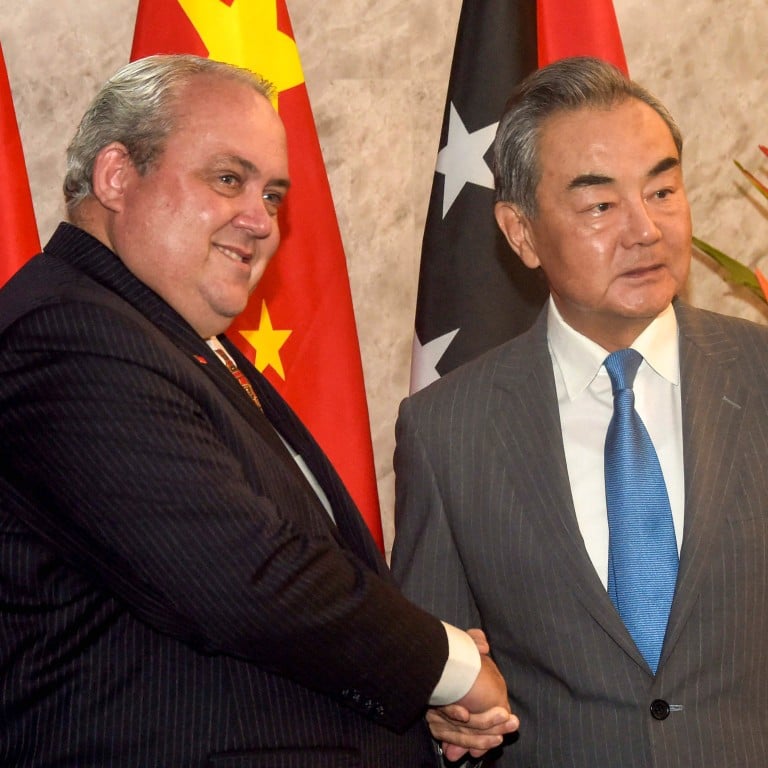
No political strings to China’s aid for Pacific island nations: Foreign Minister Wang Yi
- China has ‘never issued empty promises’ and Pacific island states have the right to choose their cooperation partners, Wang Yi says
- Remarks come as Wang arrives in PNG following visit to Indonesia on trip aimed at deeper South-South cooperation
The remarks on Saturday came as Wang arrived in Papua New Guinea following a visit to Indonesia on a trip aimed at deepening engagements with developing countries.
Addressing a joint press conference with his PNG counterpart Justin Tkatchenko in the capital Port Moresby, Wang said: “China’s assistance to the [Pacific] island countries has always been free of political conditions and impositions, and it has never issued empty promises.”
According to a Chinese foreign ministry statement, he said it was “natural and above board” for China and the island states to help each other and deepen South-South cooperation as developing countries, adding that island states had the right to choose their cooperation partners.
What can Japan offer Pacific nations amid growing Chinese influence?
During a meeting with Tkatchenko earlier, Wang said: “China’s engagement and cooperation with the South Pacific island countries is dedicated to mutual support and assistance to achieve common development, without any geopolitical self-interest.”
The region should not become “an arena for great powers to play games”, and no country should treat it as its own “backyard” or engage in zero-sum games, he was quoted as saying by another Chinese foreign ministry statement, in what was a veiled swipe at the United States.
At the joint press conference, he also “called on the international community to pay more attention to the special situation and legitimate concerns of the Pacific island countries, to focus on issues of the greatest concern to them”.
Sitting just north of Australia, PNG views itself as a gateway between Asia and the Pacific Ocean. Both China and the US have been jostling for influence in the region. As the largest island state as well as China’s top trading partner in the South Pacific, PNG has been balancing trade relationships with China while also managing defence ties with the US and its allies.
It signed a US$132 million security deal with Australia in December to boost policing, after signing a defence cooperation agreement with the US last May.
Pacific nations relish as US, China jostle to win friends and influence
Australian Prime Minister Anthony Albanese arrives in the PNG on Monday to mark their historical defence ties and for joint World War II commemorations.
China has long been accused of imposing unfavourable terms in extending a helping hand to the Pacific and not delivering on promises, claims strongly opposed by Beijing.
A report in October from Australian think tank the Lowy Institute indicated that while China’s overall aid programmes in the region are diminishing, the political focus of its aid is intensifying. It said the fall reflected “a strategic shift to reduce risk, cement political ties, and enhance capital returns”, rather than a departure from the region.
According to the institute, Chinese grants and loans to Pacific island nations fell to US$241 million in 2021 – the latest available data – from a peak of US$384 million in 2016.

